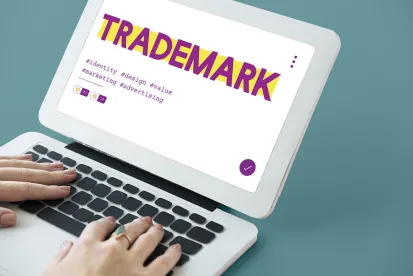The US Court of Appeals for the Seventh Circuit affirmed exercise of personal jurisdiction over a foreign online retailer for a trademark infringement claim where the trademark owner purchased the only allegedly infringing article sold in the forum. NBA Properties, Inc. v. HANWJH, Case No. 21-2909 (7th Cir. Aug. 16, 2022) (Ripple, Scudder, JJ.)
NBA Properties owns the trademarks for the National Basketball Association (NBA) and NBA teams. HANWJH is a China-based online retailer that sells allegedly infringing NBA branded products on a well-known e-commerce site. HANWJH offered 205 allegedly infringing products that were available for purchase in Illinois, the forum state. HANWJH’s only online order in Illinois was made by an investigator for NBA Properties who purchased a pair of basketball shorts for delivery to an Illinois address. The shorts were delivered to the Illinois address before NBA Properties filed suit against HANWJH.
NBA Properties sued HANWJH for trademark infringement and counterfeiting under 15 U.S.C. § 1114 and false designation of origin under 15 U.S.C. § 1125(a) in the Northern District of Illinois. NBA Properties sought and received a temporary restraining order and preliminary injunction, including a temporary asset restraint on HANWJH’s bank account. After HANWJH failed to timely answer the complaint, NBA Properties moved for default judgment. HANWJH moved to dismiss the case for lack of personal jurisdiction, arguing the following:
-
Operating a website is not sufficient on its own to establish personal jurisdiction.
-
A single transaction by the plaintiff cannot support the exercise of personal jurisdiction.
-
Even if the exercise of personal jurisdiction were otherwise appropriate, such exercise would offend the traditional notions of fair play and substantial justice.
The district court denied HANWJH’s motion to dismiss and entered a default. HANWJH failed to object to the motion for default judgment, and the district court entered a final judgment. HANWJH appealed.
The Seventh Circuit reviewed the “minimum contacts” International Shoe criterion before turning to a more recent line of cases applying this standard to online retailers. Citing its 2020 decision in Curry v. Revolution Laboratories, the Court noted that the minimum contacts requirement is satisfied if “the defendant reasonably could foresee that its product would be sold in the forum.” The Court reasoned that allowing customers to order products from a website to the forum and then fulfilling an order to the forum can form the basis of personal jurisdiction—even when the only orders to the forum were made by the plaintiff, as long as the orders were made before filing suit. Applying these principles, the Court found that HANWJH had purposefully directed conduct at Illinois by establishing an online store, demonstrating a willingness and capacity to ship goods to Illinois and intentionally shipping an infringing product to an Illinois address. The Court explained that it was irrelevant that only a single allegedly infringing article was sold in Illinois and that it was purchased by the plaintiff, because the proper focus of the analysis was on HANWJH’s purposeful conduct. The Court also concluded that HANWJH’s minimum contacts with Illinois were related to the suit because HANWJH’s sale to NBA Properties involved an allegedly infringing product.
The Seventh Circuit then addressed whether subjecting HANWJH to jurisdiction in Illinois would offend traditional notions of fair play and substantial justice. The Court acknowledged that HANWJH is a foreign party with only a single documented sale in Illinois, but nevertheless observed that there was no unfairness in “making a seller defend a suit in a state where it structured its business to ‘easily serve the state’s customers.’” The Court further noted that NBA Properties has an interest in protecting against confusion in the Illinois market, and that Illinois has an interest in protecting its consumers from counterfeit products. The Court concluded that the district court correctly held HANWJH subject to jurisdiction in Illinois.
Practice Note: When dealing with a foreign-based online retailer, a trademark owner may consider purchasing an allegedly infringing product for delivery to a desired jurisdiction in order to establish personal jurisdiction in that state. However, the jurisdiction should be selected carefully. The Fifth Circuit has taken the opposite view to the Seventh Circuit, holding that jurisdiction is improper when a plaintiff’s counsel purchases infringing products because consumer confusion does not arise out of the defendant’s sale and shipment of infringing products to the plaintiff. (See Getagadget v. Jet Creations, Case No. 19-51019 (5th Cir. Mar. 30, 2022).) Also, in BASIC v. Zazzle, the Eighth Circuit found that a single sale of an infringing article (a t-shirt) in the jurisdiction was insufficient to confer personal jurisdiction over an out-of-state defendant.



 />i
/>i

